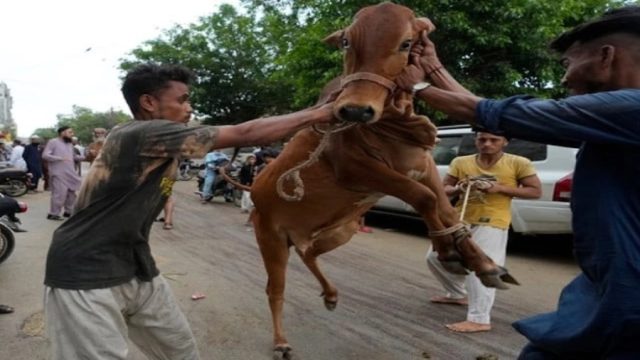Analysis by Hanif Qamar
ISLAMABAD, Saturday, June 7, 2025 (WNP): As Pakistan marks Eidul Azha – a festival known for the ritual slaughter of animals – the Punjab government has once again launched a massive sanitation operation to manage animal waste and ensure cleanliness in urban areas.
Thousands of sanitation workers have been deployed across neighborhoods to collect offal and maintain hygiene, working tirelessly around the clock. Senior government officials, including provincial ministers and even the Chief Minister, are reportedly supervising the effort, which reflects the administration’s serious commitment to managing the post-sacrifice waste.
While the initiative has been praised as a commendable public service, it comes at a steep cost. Each year, billions of rupees are spent over the three to four days of Eid to maintain cleanliness and deploy resources – both human and logistical.
But a pressing question remains: Can this recurring expense be reduced, or even avoided?
A potential alternative lies in a model widely practiced across the Arab world. In countries like Saudi Arabia, Qatar, and the UAE, individual slaughter of animals at homes or in neighborhoods is strictly prohibited. Instead, citizens are required to use government-regulated or licensed private slaughterhouses. People select animals, pay for the service, and receive the meat – all while keeping their cities clean and organized.
Why can’t Pakistan adopt a similar model?
If the government designates centralized, regulated slaughterhouses – either under municipal authorities or licensed private operators – the entire process could be streamlined. This would not only reduce the burden on sanitation services but also bring several additional benefits: better price regulation of animals, elimination of public display and extravagance around sacrificial animals, and significant savings of public funds and manpower.
Such a shift would only require a clear executive order from the government, making it mandatory for all sacrifices to be conducted at approved slaughter facilities. The system could be enforced with legal backing, while public awareness campaigns could help bring citizens on board.
It is time for policymakers to consider this practical and sustainable alternative. Citizens, media, and civil society must collectively raise their voices to urge the government to adopt a cleaner, more cost-effective approach to managing Eidul Azha sacrifices.
Note: The author is a senior journalist and anchorperson with extensive experience in Pakistan’s political affairs. He can be reached at +92 300 8116117.




